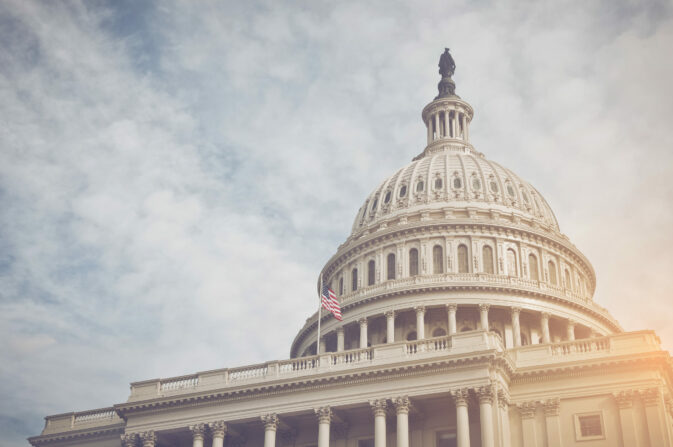Are Entrepreneurs the Real Race Revolutionaries? | Opinion

“I was recently in an Atlanta bookstore and saw a book displayed for grade-schoolers called Sylvia and Marsha Start a Revolution,” Alfredo Ortiz, CEO of Job Creators Network, told Newsweek. “Amazon described it as a book about transgender women of color who fought for LGBTQ+ equality. The moral of the story was that kids, especially minority kids, should pursue social activism to make the world a better place,” Ortiz explained. “My immediate thought was, why not a book called Sylvia and Marsha Start a Business featuring tales of successful minority entrepreneurs?”
That was the genesis of Ortiz’s provocative new book, The Real Race Revolutionaries: How Minority Entrepreneurship Can Overcome America’s Racial and Economic Divides.
It begins by chronicling a debate between two African-American thought leaders of the early 20th century. “Not enough minorities know about the showdown between W.E.B. Du Bois and Booker T. Washington,” Ortiz explained. “Du Bois argued that activism and political power were the best way for black Americans to attain racial equality, and that capitalism was inherently racist. He argued that black schools should develop an elite leadership class, and for black Americans to increase their political influence,” Ortiz explained. Du Bois would become a leading member of the Socialist Party of the United States.
We meet Carlton Guthrie, owner of Detroit Chassis, a business that assembles chassis for Ford motorhomes and commercial trucks. Carlton grew the company from a small metal-stamping unit into one of the largest black-owned manufacturers in Michigan. It takes in $100 million a year in revenue from Ford alone and employs roughly 160 workers, most of whom are black.
“Born in Gary, Indiana to humble beginnings, Carlton lived the American Dream through entrepreneurship, but the financial rewards paled in comparison to what he’s given back to his community,” Ortiz said. “Carlton has created thousands of quality jobs for black workers in the most economically distressed parts of his state.”
Ortiz shares stories from recent immigrants to America, from places like Nicaragua and Cuba. And then comes the data and research to support his anecdotal evidence.
In 2019, median white household income was $76,057, versus $56,113 for Hispanic households and $46,073 for black households. “Which means white households earned roughly 50% more than Hispanic and black households,” Ortiz stated. “But further analysis revealed that median Asian household income was $98,174 —30% greater than white households. “This Asian outperformance undercuts the progressive claim that economic disparities are attributable to racism,” Ortiz noted.
It turns out that dramatic disparities within racial groups is also compelling evidence that racism cannot be the source. “Nigerian-American households earned $68,658 in 2018, 50% more than all black Americans, and Lebanese-Americans earned $87,099, 30% more than Egyptian-Americans and 74% more than Moroccan-Americans. And Argentinian-Americans earned $75,810, over 50% more than Dominican and Honduran-American households,” Ortiz added. “For these intra-racial wealth gaps to exist in the ‘racist’ America of progressive lore, people would have to hold racial animus toward some blacks, Middle Easterners, and Latinos, but not others. That’s implausible,” Ortiz concluded.
The biggest income gaps in America, Ortiz added, were not between blacks and whites, but among Asians. Indian-American household income was $126,705, with Bangladeshi-Americans at $67,944 and Burmese-Americans at a mere $45,903.
The more Ortiz looked, the more evident it was that entrepreneurship was the key to closing wealth gaps. Even President Joe Biden‘s treasury secretary, Janet Yellen, described business ownership as a key to mitigating wealth inequality. Entrepreneurship, she said, “is a significant source of economic opportunity for many families below the very top in income and wealth.”
It isn’t just Ortiz and Yellen making this point. A recent Congressional Black Caucus Foundation study found that the median net worth for black business owners is 12 times higher than for black non-business owners. That means black entrepreneurship more than eliminates racial income and wealth gaps, earning and saving far more than median white households.
Using data from the Panel Study of Income Dynamics, University of Washington economist William Bradford discovered that black entrepreneurs have higher upward mobility and wealth levels than black workers. What’s more, the black entrepreneurship wealth mobility dividend is equivalent to that of white entrepreneurs, Ortiz explained. Bradford concluded that if black entrepreneurs continue their recent outperformance in wealth mobility, “increasing the rate of black entrepreneurship will reduce the wealth disparity between black and white families,” according to Ortiz.
“A recent study by economists at Brandeis University found that successful black entrepreneurs from the middle third of the American wealth distribution have a 60.5% chance of entering the top third of wealth holders within four years,” Ortiz explained. “In contrast, black wage earners have a 27.5% chance. The study also concluded that black entrepreneurs have a nearly 20% greater chance of moving into the top third of wealth earners than white entrepreneurs.”
Hispanic entrepreneurship is also closing the racial wealth gap. The ratio between white and Hispanic household wealth declined from 8:1 in 2013 to 5:1 in 2019, as Hispanic entrepreneurship skyrocketed. The median net worth of self-employed Hispanics is $174,920, and the median net worth of self-employed Hispanics with business equity is $314,280. You won’t hear much about these studies in the corporate media, or at most campuses across the nation obsessed with a very different definition of “equity.”
There are 10 million minority-owned small businesses in America, generating $2 trillion of annual wealth—and that is projected to triple by 2060. Blacks and Hispanics trail other ethnic groups in business formation, but more respect for capitalism and more knowledge about entrepreneurship can change those numbers, Ortiz believes.
Knowledge about family formation matters, too, because it’s vital in determining economic outcomes. “More than three-quarters of households in the top income quintile are married-couple families, versus one-sixth among the bottom quintile,” Ortiz explains. “While the black poverty rate is well above the national average, the poverty rate among married blacks is below the rate of whites,” Ortiz added.
“But the best proof of American tolerance and opportunity,” Ortiz said, “is the fact that the overwhelming majority of recent immigrants are racial minorities.” And 150 million more immigrants would move to the United States if they could, according to Gallup.
A Pew study showed that Asia has displaced Latin America as the biggest source of immigration to America, demonstrating that immigrants don’t necessarily choose this country due to geographical proximity. “Would they come if America was plagued by ‘structural racism?'” Ortiz asks. “Minorities continue to choose America because it’s where they can live their best lives.”
It’s a race revolution all Americans should get behind: Ortiz’s hope for an ever-expanding entrepreneurial class among minority populations is a revolution all Americans can get behind. It’s the best and most time-honored path to household wealth and national wealth, too—long known by those who have trodded its course as the American Dream.





